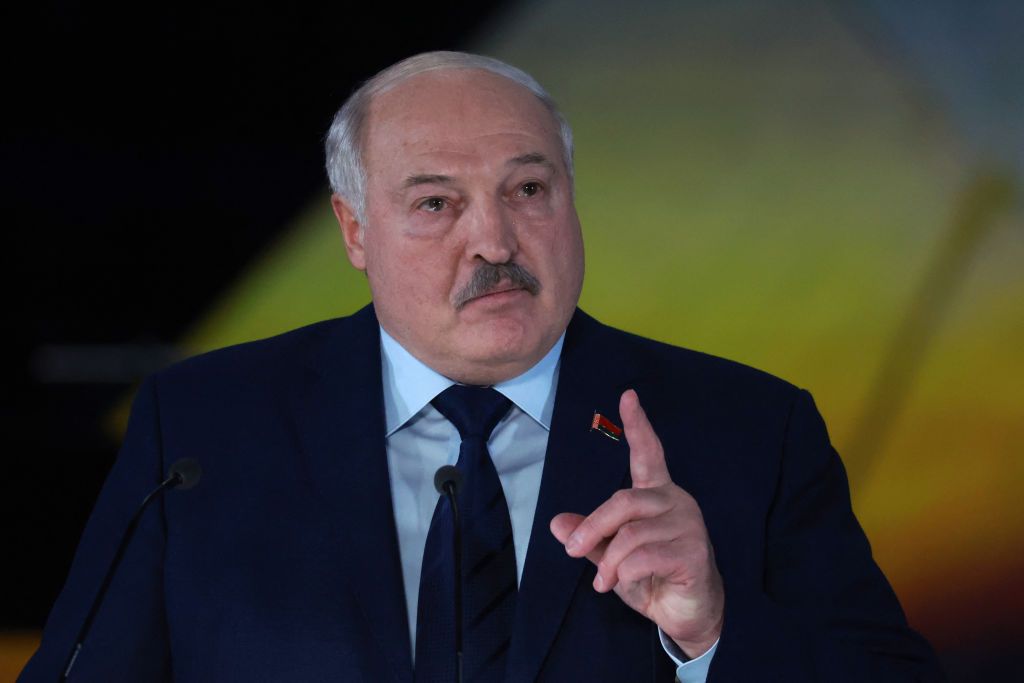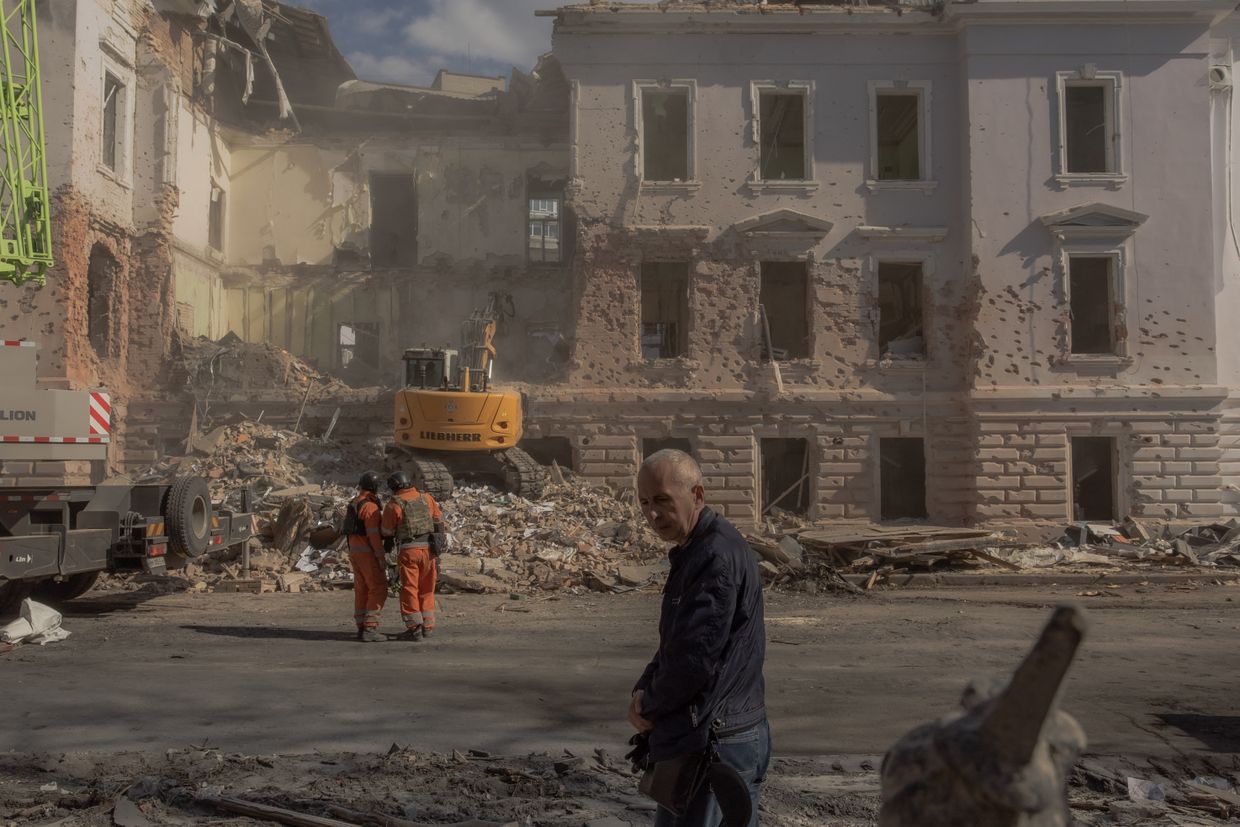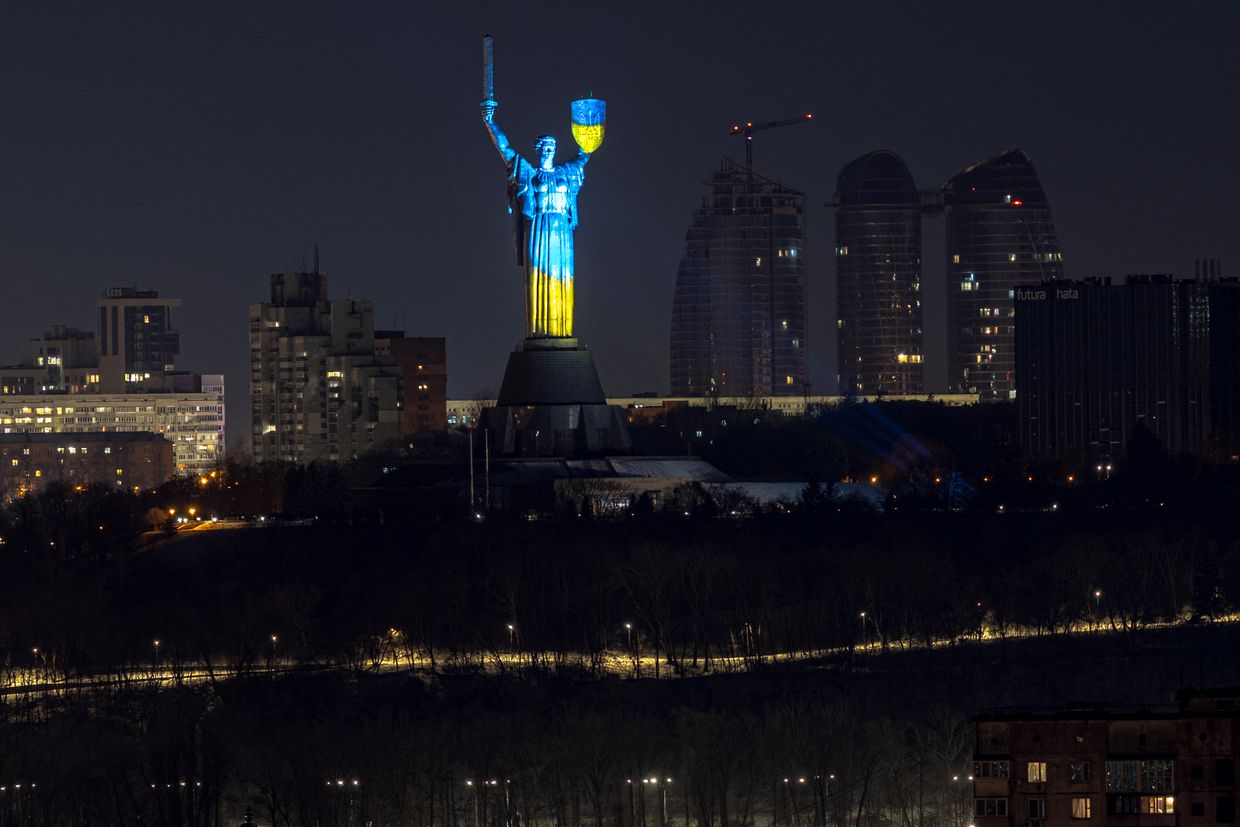Lukashenko signs decree exempting military from accountability for using firearms against civilians.
Ukraine's former ambassador to Belarus becomes ambassador-at-large to exiled Belarusian Democratic Movement in major shift in Kyiv’s official position on Belarus.
Belarus and Russia plan to unify their lists of “extremist” individuals and organizations, allowing more joint political targeting and coordinated repression of opposition.
UK Intelligence reports less than 1,000 Wagner mercenaries now remain in Belarus.
Crackdown on relatives of regime's political opponents intensifies as Belarusian courts hand down first sentences for alleged "use of foreign aid to carry out extremist activities.”
Lukashenko waives responsibility of military for using firearms against civilians
Belarusian dictator Alexander Lukashenko has signed a decree amending the general military regulations of Belarus’ Armed Forces, lifting their responsibility for injuring or killing civilians.
An updated clause, published on Feb. 3, eliminates the requirement to fire warning shots and removes any serviceman’s responsibility for using a weapon against the country’s citizens. However, in the case of injury or death, the army must notify the prosecutor and the preliminary investigation body.
In the vaguely worded amendments to the regulations, “the evolving situation, the nature of the crime (or) administrative offense, and the personality of the offender” are now introduced as factors in a serviceman’s decision to use firearms.
Earlier amendments to counter-terrorism legislation approved by the Belarusian Parliament on Dec. 7, 2023, allowed officers from the notorious Belarusian KGB secret service to use firearms on crowds.
Belarusian opposition leader Pavel Latushka said the legislative updates are a “purposeful campaign to normalize killings, to normalize the use of firearms against those who disagree with the regime, and Belarusians in general.”
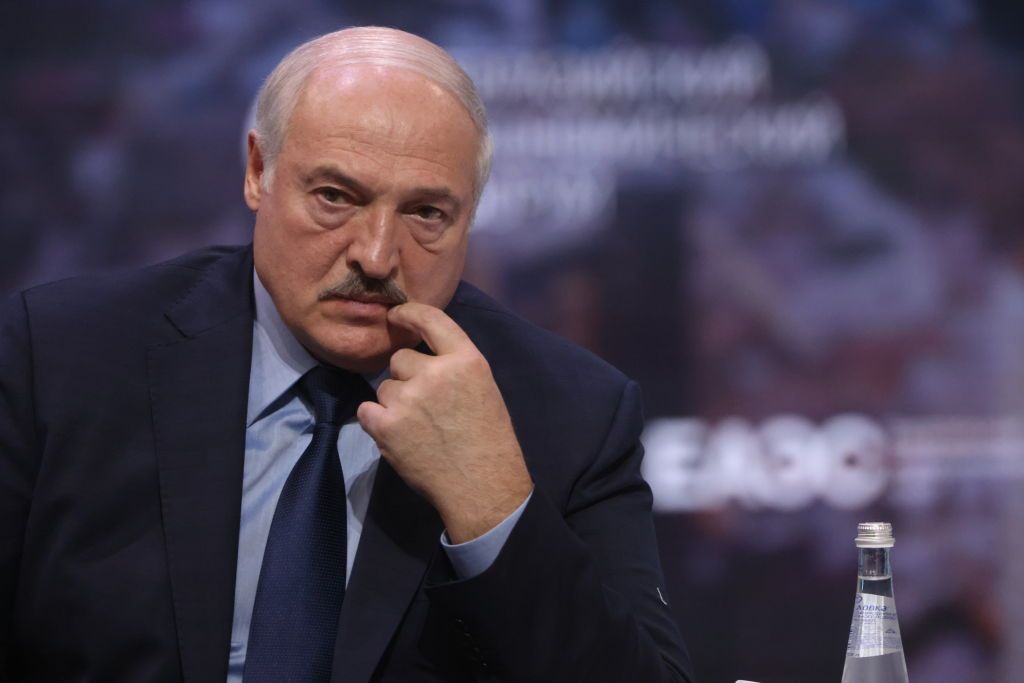
Ukraine appoints ambassador-at-large to Belarus democratic opposition
Former Ukrainian Ambassador to Belarus Ihor Kyzym has been appointed ambassador at large to the exiled democratic movement of Belarus, headed by opposition leader Sviatlana Tsikhanouskaya.
Kyzym announced the Foreign Ministry’s decision on Feb. 2 on his Facebook page.
“Obviously, any issue related to Belarus is currently of a ‘special’ nature,” Kyzym said.
“Based on this, my responsibilities include, among other things, issues related to the democratic forces of Belarus as a part of the Belarusian society that opposes the policy of the current leadership of Belarus.”
While the regime of Lukashenko sided with the Kremlin in its war of aggression and provided its territory for an assault on Kyiv in the early days of Russia’s full-scale invasion, Ukraine did not immediately sever its diplomatic relations with Minsk.
Ukraine’s ambassador to Belarus of five years, Kyzym, remained in Minsk until April 18, 2023, when Belarusian dictator Lukashenko met with Denis Pushilin, a Russian proxy leader in a Russian-occupied part of Ukraine’s Donetsk Oblast. After being recalled for consultations, the Ukrainian ambassador was withdrawn on June 22, 2023.
Currently, diplomatic relations between Kyiv and Minsk remain at their lowest ever point.
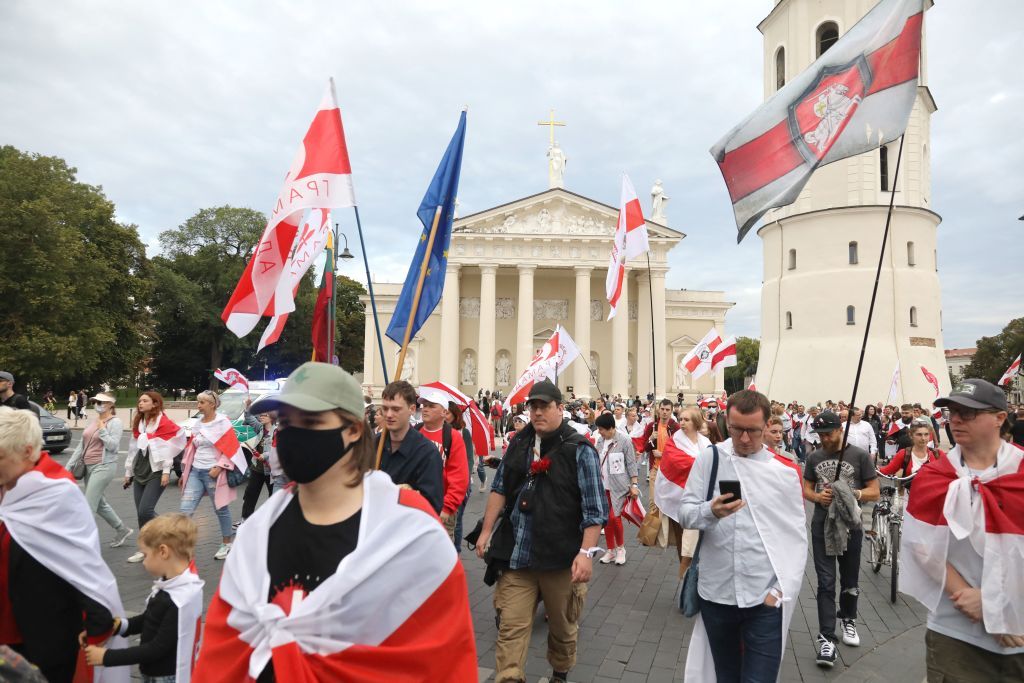
The move also marks a departure by Kyiv from its earlier strategy of maintaining a distance from the Belarusian opposition in exile: Zelensky is yet to officially meet Tsikhanouskaya, who is generally regarded by Western leaders as a legitimate representative of Belarusians.
With the appointment of an ambassador-at-large, Kyiv is following the footsteps of other European nations, such as Lithuania, Poland, and Sweden, all of which now have special envoys to Belarusian opposition rather than the Lukashenko regime.
Belarus, Russia to create joint list of ‘extremist’ organizations and individuals
Belarus and Russia are to unify their lists of extremists and extremist organizations, Belarusian Ambassador to Russia Dzmitry Krutoy told the press on Feb. 6.
As reported by Belarusian state-owned news agency BelTA, Krutoy said that the interior ministries of both states have been in talks regarding the issue and are working to produce a combined list of “extremists” – in actual fact, political opponents of the respective regimes in Minsk and Moscow – is underway.
“Of course, there is a need for more coordination among the security agencies here, (but) I think this will be resolved in the near future,” Krutoy added.
Belarus and Russia both use their anti-extremism laws to target political opponents.
The Belarusian Information Ministry oversees the list of extremist materials, which features almost all independent media, hundreds of Telegram channels, and chats.
Meanwhile, the Belarusian Interior Ministry maintains a list of individuals “involved in extremist activities,” which currently has 3,753 entries.
Critics of the regimes in Russia and Belarus say unifying the respective countries’ lists of “extremists” would allow for more politically motivated cases.
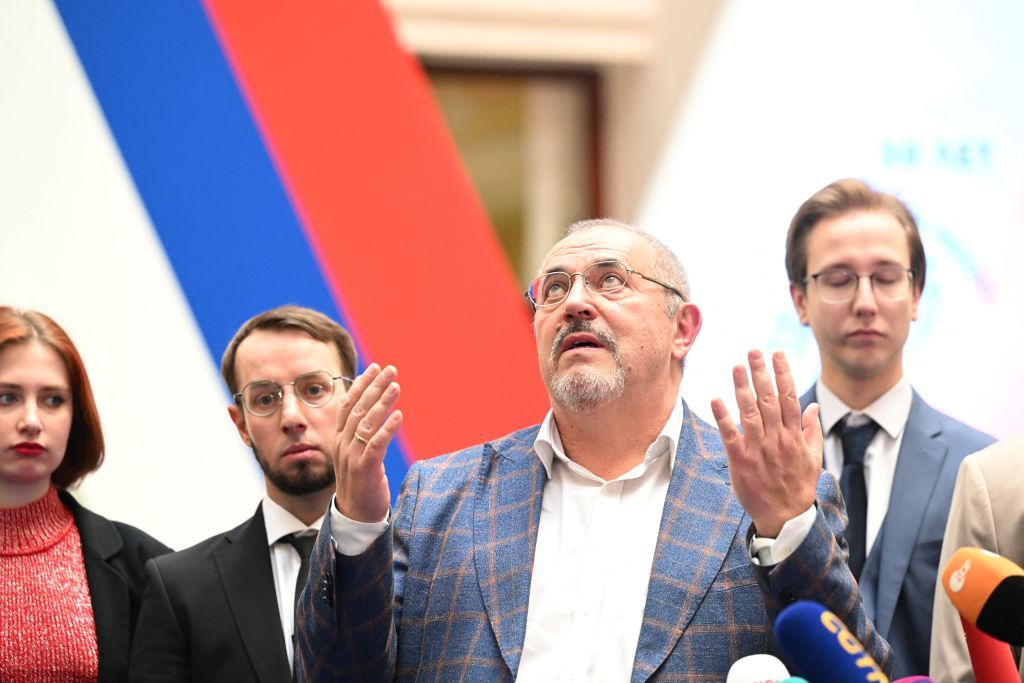
UK Intelligence reckons under 1,000 Wagner mercenaries remain in Belarus
Fewer than one thousand Russian Wagner Group mercenaries remain in Belarus, likely continuing training for Belarusian military and security forces, U.K. Defense Intelligence stated on Feb. 4.
Wagner mercenaries arrived in Belarus after Wagner Chief Yevgeny Prigozhin’s armed insurrection launched on June 23, 2023, abruptly came to an end. Belarusian dictator Alexander Lukashenko allegedly helped broker a deal to relocate the mutinous Wagner troops to Belarus. Lukashenko and his officials suggested that the Wagner troops could help train the Belarusian military.
The first six convoys of Wagner mercenaries arrived in Belarus on July 18, the Belarusian monitoring group Belarusian Hajun reported at the time. At its peak, the reported number of Wagner mercenaries in the country reached 8,000 people.
European Union and NATO members Poland, Latvia, and Lithuania called for the bolstering of the Western allies’ eastern defenses following reports of Wagner’s deployment in Belarus and threatened to completely shut their borders with Belarus should a “critical incident” involving the Wagner Group occur.
The number of mercenaries stationed in Belarus declined after Prigozhin was killed in a plane crash on Aug. 23 in Russia’s Tver Oblast.
In late January 2023, Alexei Bergovin, a Wagner mercenary and currently an instructor for the Belarusian security forces, claimed that “more than 300 Wagner instructors in several training centers” currently remain in Belarus.
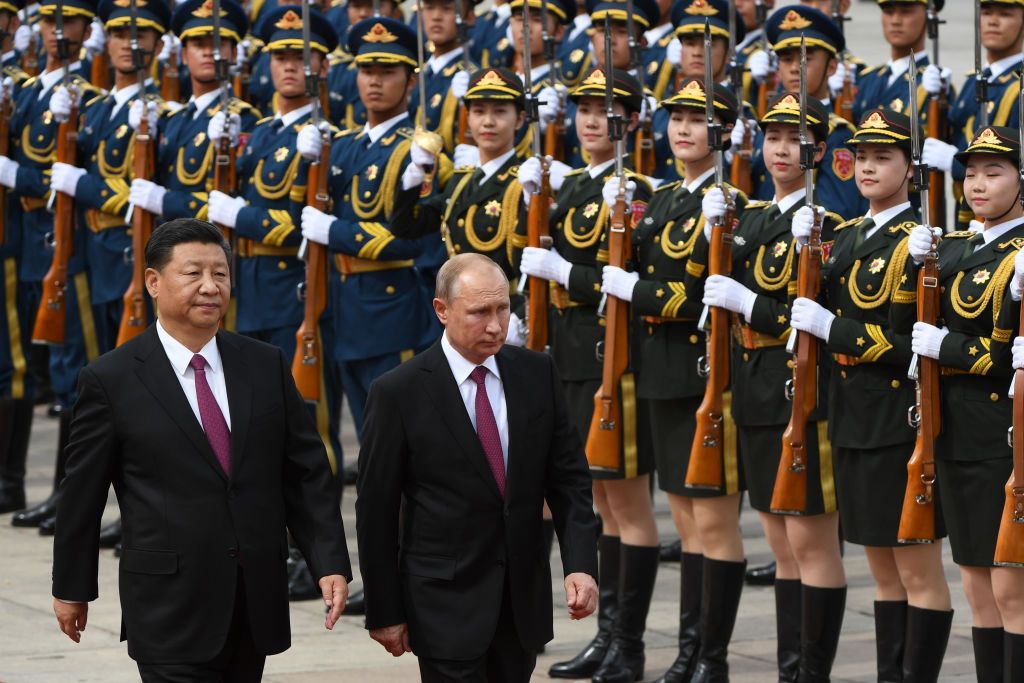
Viasna: Belarusian courts started sentencing detainees for “using foreign aid to carry out extremist activities”
Belarusian courts have, for the first time, handed down sentences for the “gratuitous use of foreign aid to carry out terrorist and other extremist activities or other actions prohibited by law,” the Viasna Human Rights Center reported on Feb. 5.
The Viasna human rights activists said they believe the authorities were targeting the families of political prisoners who received financial aid from solidarity initiatives.
“This is the arbitrary persecution of people who have not violated any legal rules, (…)” Viasna human rights advocate Pavel Sapelka said. Sapelka suggests the provision of aid to families is becoming an excuse to launch prosecutions.
The Belarusian KGB secret service on families of political prisoners and former detainees on Jan. 23-24, with over 200 people across the country being detained. The activists linked the mass raids to an emergency food assistance project called INeedHelpBY, which was supporting those who have lost their income due to political repression in Belarus. The Belarusian KGB earlier designated the project an “extremist formation.”
The United States has condemned the raids and reiterated the need for sanctions to hold the regime of Belarusian dictator Alexander Lukashenko accountable.
Poland’s Foreign Affairs Ministry has also called for a new sanctions package in response to the intensified crackdown.
European Parliament members Juozas Olekas, the chair of the Delegation for Relations with Belarus, and the European Parliament’s Standing Rapporteur on Belarus, Petras Auštrevičius, issued a joint statement urging Belarus to cease repression and release all political prisoners.
Since the fraudulent presidential elections of 2020, Lukashenko has tightened his grip on power through wielding brute force. Currently, his regime is holding hostage nearly 1,500 political prisoners, with hundreds of new detentions every month.
Supporting a convicted prisoner can cost families over $2,000 a year, while the officially reported average salary in Belarus is roughly $582 a month, human rights activists say.
After jailing political opponents, the Lukashenko regime is now harassing the families of political prisoners if they receive virtually any form of support.




